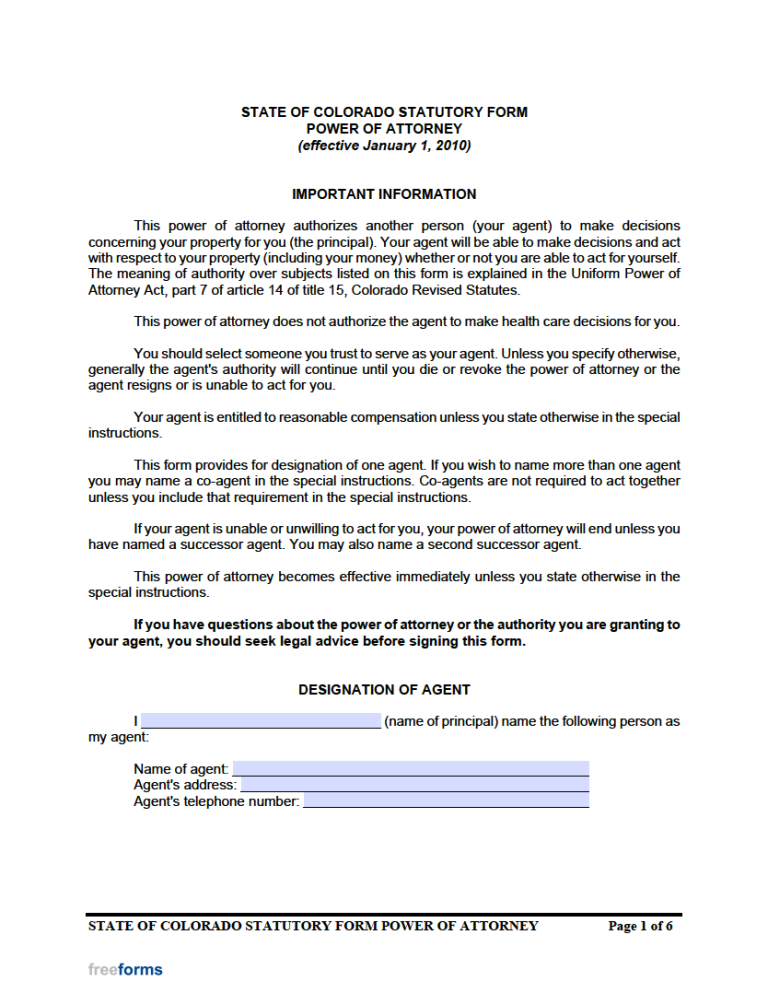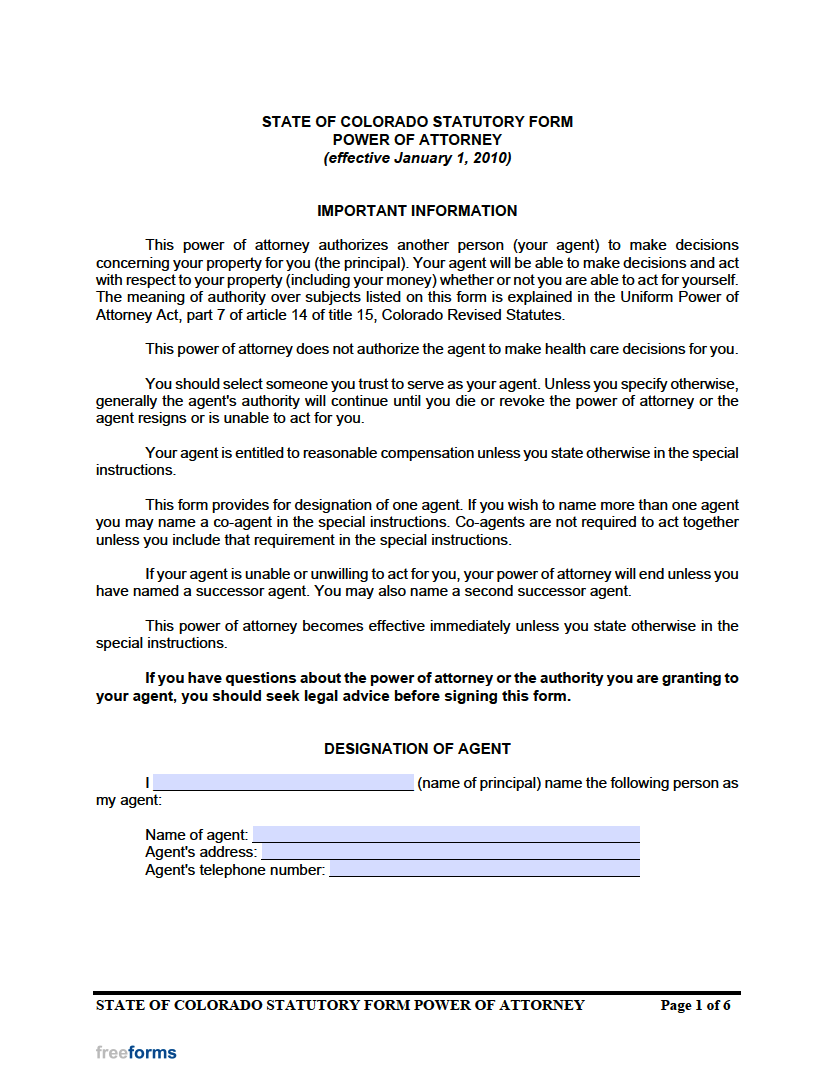Laws
Statutes – Colorado Revised Statutes – Uniform Power of Attorney Act (§ 15-14-701 – 15-14-745) and Colorado Revised Statutes – Declarations – Future Health Care treatment (§ 15-18-113 – 15-18.7-110)
Definition – “Power of attorney” means a writing or other record that grants authority to an agent to act in the place of the principal, whether or not the term power of attorney is used (§ 15-14-702(7)).
Signing Requirements – Acknowledgment of Notary Public is needed to properly instate the arrangement inherent in the contract (§ 15-14-705). Advance directives and living wills require verified corroboration of the document’s execution from either a licensed notary or two (2) approved witnesses (§ 15-18-106).
Revocation – § 15-14-710 and § 15-18-109
By Type (11)
- Advance Directive (Medical POA & Living Will)
- Durable (Financial) Power of Attorney
- General (Financial) Power of Attorney
- Limited (Special) Power of Attorney
- Living Will
- Medical Power of Attorney
- Minor Child Power of Attorney
- Motor Vehicle Power of Attorney
- Real Estate Power of Attorney
- Revocation of Power of Attorney
- Tax Power of Attorney
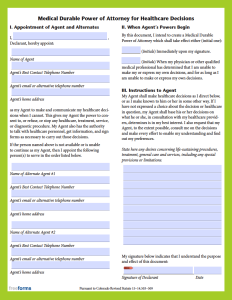 Advance Directive – This form fuses a living will and medical POA, which provides the user with the option of declaring their medical wishes and appointing an individual to make medical choices for them.
Advance Directive – This form fuses a living will and medical POA, which provides the user with the option of declaring their medical wishes and appointing an individual to make medical choices for them.
Download: PDF
Signing Requirements: The living will portion requires at least two (2) witnesses or one (1) notary public to view the principal’s signature (§ 15-18-106).
Durable (Financial) Power of Attorney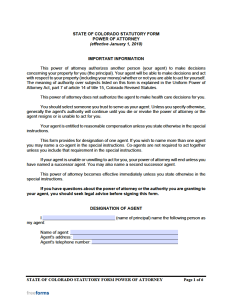 – Makes it possible to appoint multiple types of financial powers to another person and continues to remain active after the point of incapacitation.
– Makes it possible to appoint multiple types of financial powers to another person and continues to remain active after the point of incapacitation.
Download: PDF
Signing Requirements: Acknowledgment of Notary Public (§ 15-14-705)
General (Financial) Power of Attorney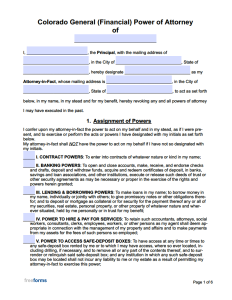 – Is almost interchangeable with the durable POA in terms of what powers can be granted, but it ceases to continue once the principal has lost their ability to operate mentally.
– Is almost interchangeable with the durable POA in terms of what powers can be granted, but it ceases to continue once the principal has lost their ability to operate mentally.
Download: PDF, Word (.docx)
Signing Requirements: Acknowledgment of Notary Public.
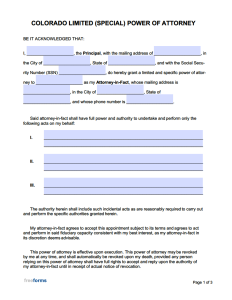 Limited (Special) Power of Attorney – A highly customizable POA that allows the principal to input their own description of the power they wish to grant.
Limited (Special) Power of Attorney – A highly customizable POA that allows the principal to input their own description of the power they wish to grant.
Download: PDF, Word (.docx)
Signing Requirements: Acknowledgment of Notary Public.
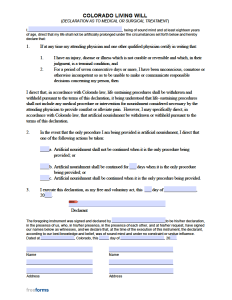 Living Will – Also referred to as a “Declaration as to Medical or Surgical Treatment”, this form lets the principal input their desired medical instructions should they be unable to express themselves in the future.
Living Will – Also referred to as a “Declaration as to Medical or Surgical Treatment”, this form lets the principal input their desired medical instructions should they be unable to express themselves in the future.
Download: PDF
Signing Requirements: Acknowledgment of Two (2) Witnesses (§ 15-18-106)
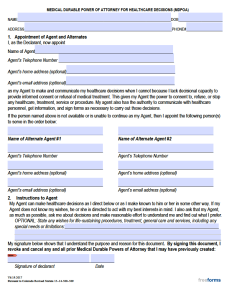 Medical Power of Attorney – Has the sole purpose of designating another party to make healthcare decisions on your behalf should you not be able to at a later date.
Medical Power of Attorney – Has the sole purpose of designating another party to make healthcare decisions on your behalf should you not be able to at a later date.
Download: PDF
Signing Requirements: Although not required, principals of this form are advised to sign in the presence of a notary public or two (2) witnesses.
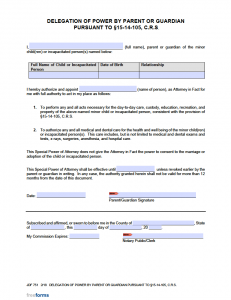 Minor Child Power of Attorney – Sanctions the conveyance of parental powers to another individual so that they can adequately care for the assigning party’s child for a temporary period of time (maximum of twelve (12) months).
Minor Child Power of Attorney – Sanctions the conveyance of parental powers to another individual so that they can adequately care for the assigning party’s child for a temporary period of time (maximum of twelve (12) months).
Download: PDF, Word (.docx)
Signing Requirements: Acknowledgment of Notary Public.
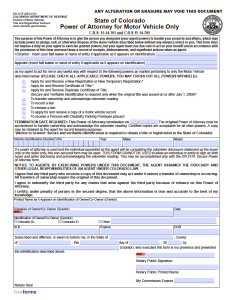 Motor Vehicle Power of Attorney – Transfers the right to buy, sell, title, or register a vehicle in the principal’s name with the use of this form.
Motor Vehicle Power of Attorney – Transfers the right to buy, sell, title, or register a vehicle in the principal’s name with the use of this form.
Download: PDF
Signing Requirements: Acknowledgment of Notary Public.
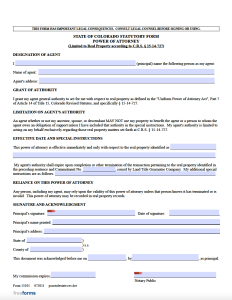 Real Estate Power of Attorney – Considered a limited/special type of POA, this instrument’s primary goal is to permit another individual to act on the principal’s behalf regarding real property.
Real Estate Power of Attorney – Considered a limited/special type of POA, this instrument’s primary goal is to permit another individual to act on the principal’s behalf regarding real property.
Download: PDF
Signing Requirements: Acknowledgment of Notary Public.
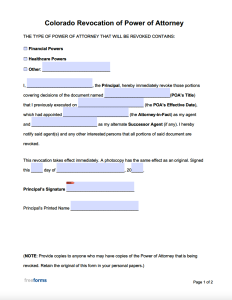 Revocation of Power of Attorney – Principal parties that wish to revoke the powers delivered in a previous POA may do so by fulfilling this document.
Revocation of Power of Attorney – Principal parties that wish to revoke the powers delivered in a previous POA may do so by fulfilling this document.
Download: PDF, Word (.docx)
Signing Requirements: It is recommended that a public official (or notary) notarize the form to ensure the document’s validity.
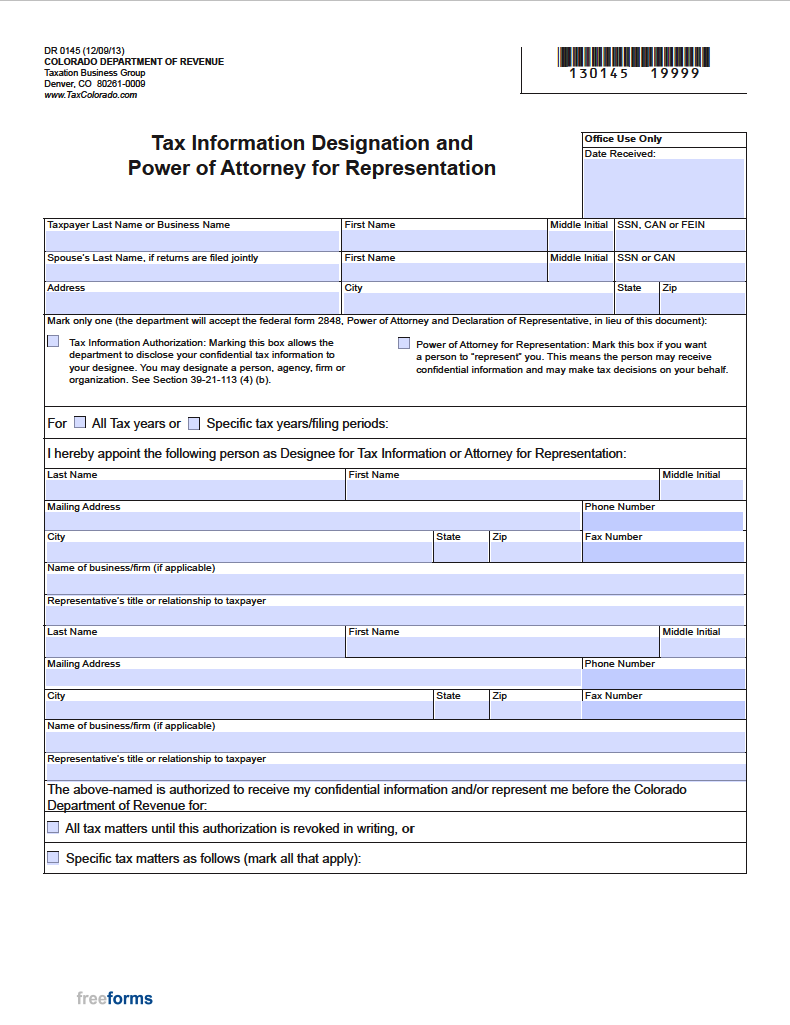 Tax Power of Attorney (Form DR 0145) – Expresses the conveyance of powers related to tax matters.
Tax Power of Attorney (Form DR 0145) – Expresses the conveyance of powers related to tax matters.
Download: PDF
Signing Requirements: Requires the principal party’s signature (as well as their spouse’s if applicable) and the endorsement of their representation.
